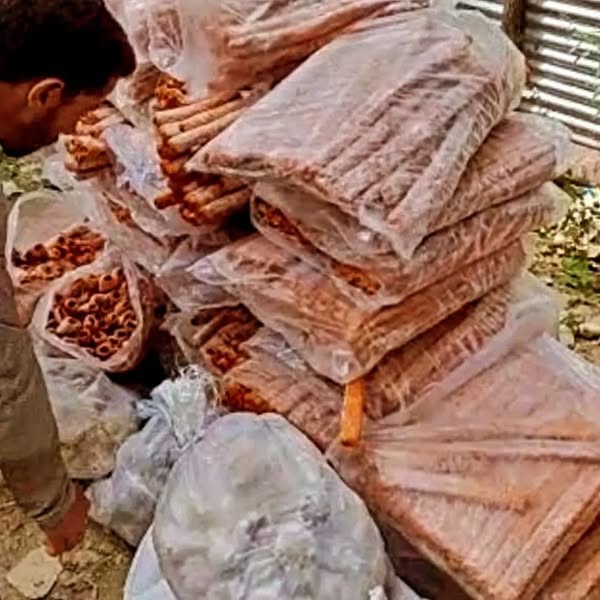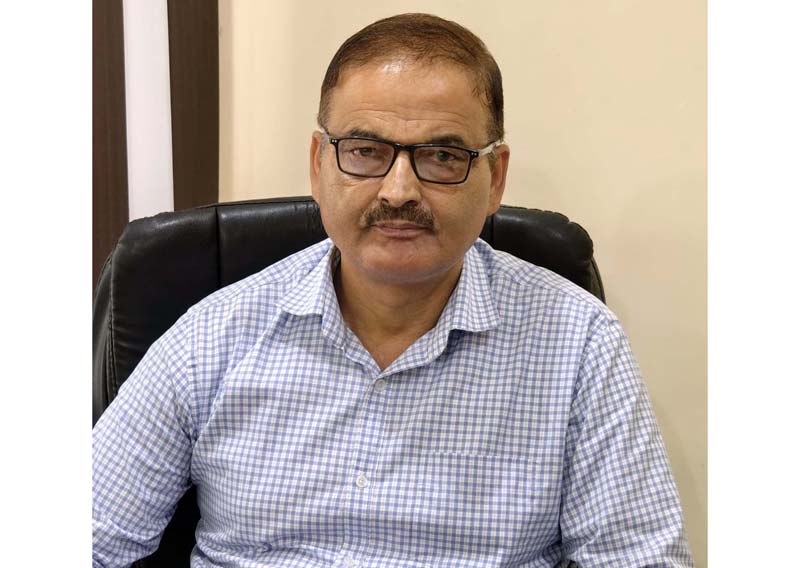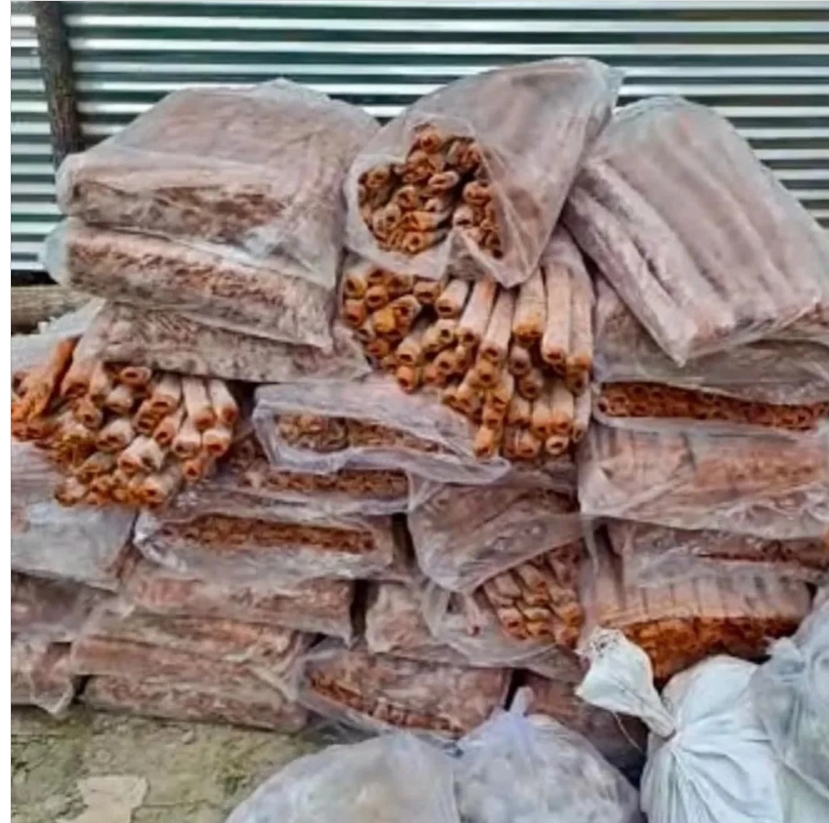From Ghazipur to Srinagar, the trail of contamination reveals a collapsed regulatory chain and a culture of unchecked greed
By Ajaz Rashid
In what has become one of the most shocking food safety scandals in Kashmir’s recent history, authorities have seized over 3,500 kilograms of rotten, contaminated meat across the Valley in just over a week, triggering widespread panic, religious outrage, and a crisis of trust that strikes at the heart of Kashmiri society. The discovery has not only exposed dangerous health risks but also raised profound questions about regulatory oversight, religious compliance, and the very integrity of Kashmir’s food supply chain.
The Discovery That Shook a Valley
The scandal first erupted on July 31, 2025, when Food Safety Department officials, acting on a tip-off, raided a cold storage facility at Zakura Industrial Estate on the outskirts of Srinagar. What they found defied their worst expectations: 1,200 kilograms of decomposing meat stored without proper refrigeration, lacking any identification labels, and emitting a foul stench that made seasoned inspectors recoil. The meat, intended for distribution to restaurants and food stalls across the Valley, was found stored at temperatures far above the required minus 18 degrees Celsius.
What followed the Zakura discovery was a cascade of revelations that painted a disturbing picture of systematic food adulteration across Kashmir. Within days, enforcement teams were not just conducting raids but discovering abandoned meat consignments dumped along roadsides, in marshlands, and near schools. The scale of dumping suggested a panicked response from traders attempting to dispose of evidence as the crackdown intensified.

The Supply Chain Exposed
Investigations have traced the contaminated meat’s origins to suppliers in Ghazipur, Uttar Pradesh, and Jaipur, Rajasthan. Officials revealed that much of the suspect meat enters Kashmir through the Lakhanpur checkpoint, the primary entry point from Punjab, where regulatory oversight appears inadequate. The meat travels in trucks without proper cold-chain maintenance, often arriving in Kashmir after extended journeys without adequate temperature control.
“Much of the suspect meat reportedly originates from outside Jammu & Kashmir, entering through the Lakhanpur checkpoint. In the absence of veterinary inspections, cold-chain systems, or documentation, meat of dubious origin—including possibly dead or non-halal animals—can enter Kashmir’s markets unchecked,” food safety experts. This regulatory gap has created a gateway for unscrupulous traders to flood Kashmir’s markets with substandard products at prices local butchers cannot match.
Religious and Cultural Earthquake
The scandal’s impact extends far beyond public health concerns, striking at the core of Kashmir’s religious and cultural identity. In a Muslim-majority region where halal compliance is a religious necessity, the discovery of potentially non-halal meat has caused profound spiritual distress. Grand Mufti of Jammu and Kashmir, Mufti Nasir-ul-Islam, issued an unprecedented fatwa against the consumption of suspect meat products, warning against items such as momos, kebabs, and frozen meat of uncertain origin.

“Earning or eating haram is not permissible under any circumstance,” the Grand Mufti declared in a formal video message, advising people to “buy only from trusted shops, where the slaughtered animal is visible and the halal process is verified”. The religious leader demanded strict legal action, including invoking the Public Safety Act (PSA), against those involved in selling haram meat.
Kashmir’s chief cleric, Mirwaiz Umar Farooq, delivered a scathing condemnation during his Friday sermon at the historic Jamia Masjid, describing the scandal as “zulm (oppression)—a grave injustice.” He raised uncomfortable questions about the actual nature of the seized meat, with community concerns about whether it was even from permissible animals or worse, carrion (maytah), which is strictly prohibited in Islam.
Economic Devastation Across the Valley
The scandal’s economic impact has been swift and devastating for Kashmir’s hospitality sector. Restaurant owners report customer footfall dropping by 60-80 percent as public trust evaporated overnight.
The psychological impact has been equally severe. Social media timelines flooded with inspection videos and rumors about unhygienic kitchens have created a climate where many families prefer eating at home until trust is restored. Street vendors selling traditional items like rista and kebabs report sales dropping by more than 50 percent. “I used to prepare around 70 kilograms of meat every day. Now I can’t sell even 30 kilograms,” said one vendor.
The Kashmir Chamber of Commerce and Industry (KCCI) has called the situation “a direct threat to public health and a gross violation of consumer trust,” demanding stringent punishment for those involved and enhanced border inspections at critical entry points. The industry body emphasized that the scandal exposes “significant flaws in food safety protocols” and raises concerns about facilities operating without proper oversight.
Public Health Emergency
Health experts warn that consuming contaminated or spoiled meat can cause serious health problems, including bacterial infections, food poisoning, and potentially life-threatening illnesses. They caution that both immediate and long-term health impacts can result from unscientific and unhygienic meat consumption.
“The revelation of rotten mutton and chicken is a serious matter. People have been consuming it for years, leading to various diseases,” said Dr. Masood Rashid. He added, “Even more dangerous are the chemicals used to artificially extend the shelf life of frozen meat and chicken. We have no clarity on what types of chemicals are being used or how harmful they might be, and that is the biggest concern.”

A System in Crisis
The scandal has exposed fundamental weaknesses in Kashmir’s food safety infrastructure. The absence of mandatory inspections at entry points, inadequate cold-chain protocols, and insufficient coordination between food safety and veterinary departments have created an environment where dangerous products can enter the market undetected
Assistant Commissioner Food Safety Kashmir, Hilal Ahmad Mir, said that The Jammu and Kashmir Food Safety Department has seized and destroyed thousands of kilograms of meat in recent days, all of which failed to meet cold-chain and labelling requirements.
Daily Excelsior quoting Hilal Mir stated that the enforcement drive targets meat that is improperly labelled, uncertified, or transported and stored without the mandatory temperature-controlled cold chain.
“Without frozen transport at minus 18°C from processing to the consumer, meat spoils,” he said. He added, “The violations are about safety standards, not religious permissibility.”
Mir said some suppliers, facing increased scrutiny, have resorted to dumping unsafe meat on roadsides to avoid being caught. “With police assistance, we ensured the safe disposal of these as well,” he added.
The Path Forward
The crisis has prompted calls for comprehensive reform of Kashmir’s food safety system. Demands include reinstating supervised slaughterhouse systems with modern technology, implementing robust entry-point inspections, establishing real-time traceability systems, and creating citizen-friendly reporting mechanisms.
As Kashmir grapples with this unprecedented food safety crisis, the scandal represents more than just regulatory failure—it reflects a profound breach of the social contract between authorities, traders, and consumers. The discovery of thousands of kilograms of rotten meat has not only endangered public health but has also violated the religious and cultural values that define Kashmiri society.
The path to recovery will require more than just enforcement drives and seizures. It demands a fundamental restructuring of food safety protocols, genuine accountability for those responsible, and a restoration of the trust that has been so grievously betrayed. For Kashmir’s residents, the simple act of sharing a meal—central to the region’s hospitality culture—will never feel quite the same until this trust is rebuilt, bite by careful bite.
The scandal serves as a stark reminder that in a interconnected food system, the failure of oversight can have consequences that extend far beyond economics, touching the very soul of a community’s identity and faith. As investigations continue and reforms are implemented, Kashmir faces the challenging task of ensuring that such a betrayal of public trust never happens again.

DISTRICT-WISE MEAT SEIZURE DATA
SRINAGAR DISTRICT (Largest affected)
Total Quantifiable Seizures:
- Zakura Industrial Estate– 1,200 kg rotten meat (July 31, 2025)
- Safakadal & Parimpora– 2,500 kebabs + 150 kg Gushtaba (Aug 6-7)
- Nowgam Marshland– 1,000 kg dumped meat packages (Aug 2-3)
- HMT Hajibagh Sharief Abad– 1,000 kg illegally stored meat (Aug 9)
- Soura (near SKIMS)– 1,000 kg dumped meat (Aug 10)
- Khandey Colony, Nawgam– Unknown quantity dumped (Aug 6-7)
PULWAMA DISTRICT
Total Quantifiable Seizures: 850 kg
- Lasjan Area– 500 kg rotten meat (Aug 2-3)
- Gallandar-Pampore Road– 350 kg dumped meat (Aug 8)
- Kakapora– Unknown quantity dumped (Aug 6-7)
GANDERBAL DISTRICT
Total Quantifiable Seizures: 450 kg
- Nagbal Area– 250 kg deteriorated meat (Aug 6-7)
- Beehama Restaurant– ~200 kg rotten items, restaurant sealed (Aug 9)
- Two FBO premises– Unknown quantity, premises sealed (Aug 6-7)
ANANTNAG DISTRICT
Total Quantifiable Seizures: 190 kg
- Six locations– 150 kg substandard meat (Aug 8)
- Vailoo (Kokernag)– 40 kg rotten items, ₹18,000 fine (Aug 9)
SHOPIAN DISTRICT
Total Quantifiable Seizures: 95 kg
- Four locations(Zainapora, Herman, Barbugh, Chitragam) – 75 kg meat + 20 kg momos (Aug 9)
BARAMULLA DISTRICT
Total Quantifiable Seizures: 35 kg
- District-wide raids– 35 kg adulterated meat (Aug 9)
Leave a Reply